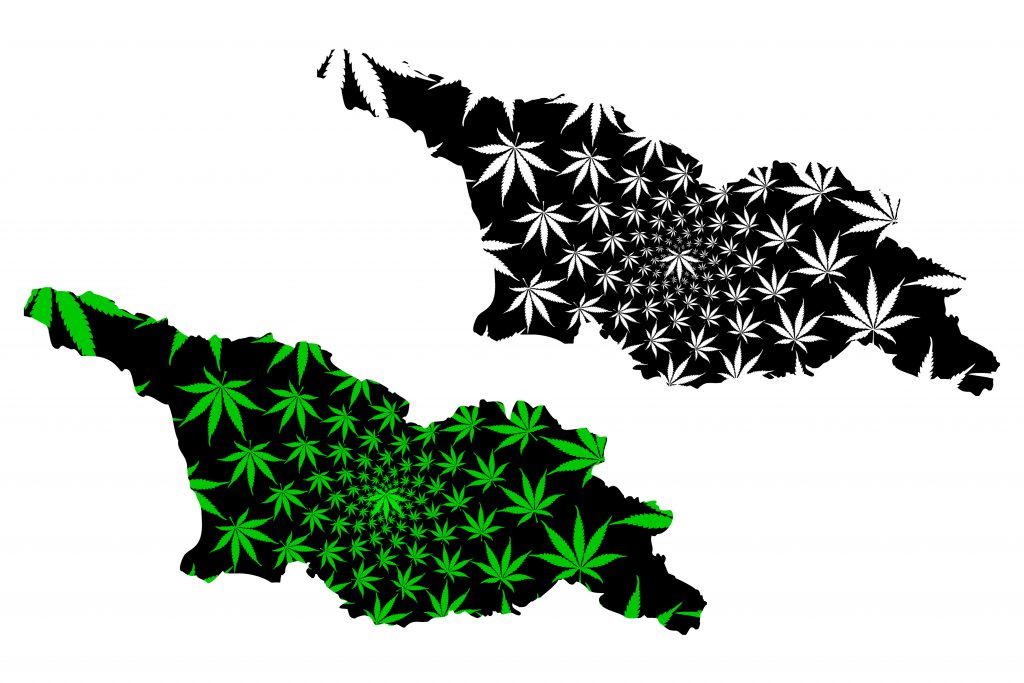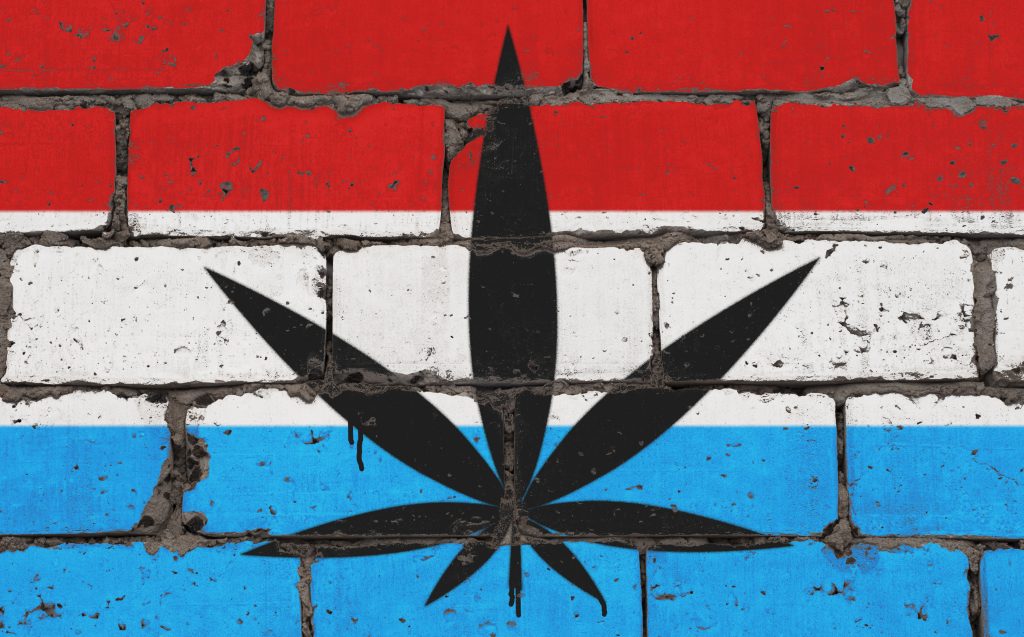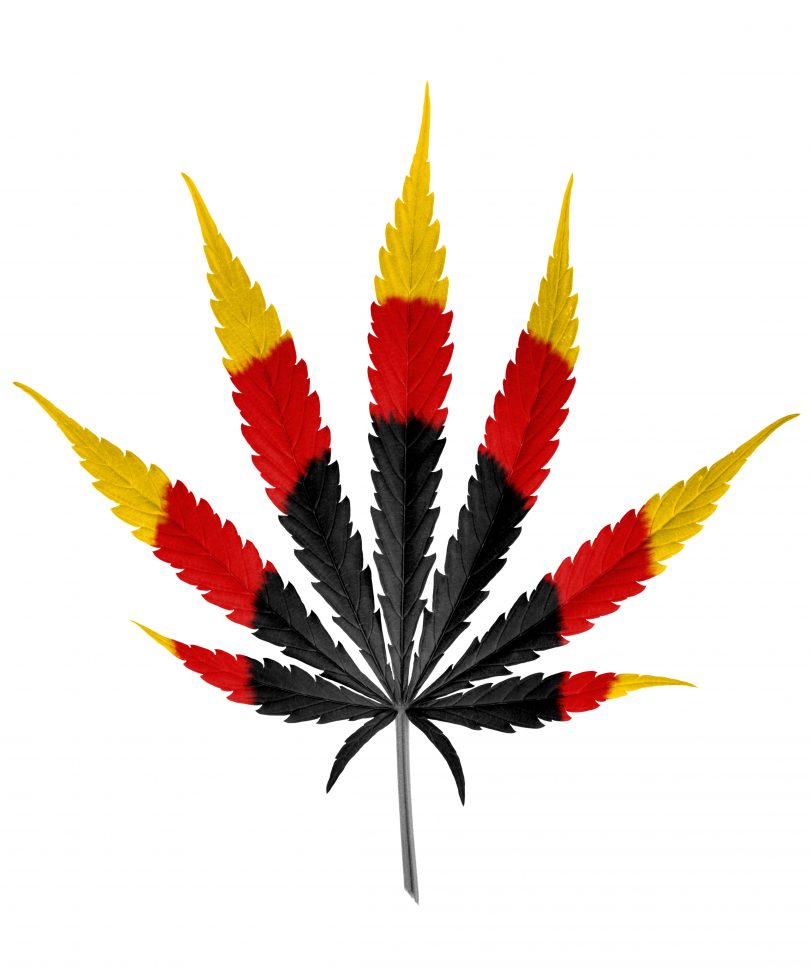It might not be the first country in the general region to legalize cannabis at all, as that designation goes to Georgia. But Germany is still the largest market in the EU, and has potential to be a massive recreational market. Now, with talks between the leading parties from the 2021 election, Germany has been inching closer to legalized recreational cannabis.
It’s about time Germany legalized recreational cannabis, and it looks to be getting very close with negotiations among top parties. If it happens, Germany will join places like the US, where not only is cannabis legal in many states, but where an entire market of cannabinoids has opened up outside of regulation. This means compounds like delta-8 THC, THCV, and even hemp-derived delta-9, are available to consumers. We’ve got great deals for delta-8 and many others, so go ahead, and check ’em out by subscribing to The THC Weekly Newsletter. Also save big on Delta 8, Delta 9 THC, Delta-10 THC, THCO, THCV, THCP & HHC products by checking out our “Best-of” lists!
The Bundestag elections 2021
It was known going into the 2021 Bundestag elections, that current chancellor Angela Merkel would be stepping down, and not going for re-election. As Merkel has been chancellor since 2005, leading with her party the Christian Democrats, her departure has pushed the door wide open for new leadership. And after a 16-year reign, Germany seems to be happy to move in a different direction.
In this year’s elections, held September 26th, the center-right Christian Democratic Union, or CDU (the Christian Democrats along with the Christian Social Union in Bavaria), lost its stronghold which it had maintained for a decade and a half. For the majority of Merkel’s leadership, the CDU formed coalitions with the Social Democrats (SPD), a center-left party, which made them voting partners, stifling the Social Democrats on many issues where voting might have been contrary.
An example of this is the recreational marijuana bill that was voted on last year, and which didn’t pass even though it had enough support. The likely reason it failed is because Social Democrats, who would have ordinarily voted for it, didn’t do so because of the coalition with the CDU.

This election swung things in the opposite direction, with the SPD taking the most seats, though certainly not enough for a majority. The SPD won by small margins, beating the CDU 25.9% to 24.1%. This equals 206 seats in parliament for the SPD, and 196 for the CDU. Along with the SPD pushing things toward the left, it was joined by the leftist Green party which took 118 seats, the liberal Free Democratic Party which won 92, and the democratic-socialists the Left, which got 39. All of this positions Germany to vote very differently on many topics in the future, including cannabis.
Germany inches closer to legalized cannabis, as top parties talk about new legislation
Right now, Germany is technically between leadership, as no coalition government has yet been formed. But they’re working on it, and the result of the coalition might result directly in Germany creating a market for legalized recreational cannabis.
According to a representative from German publication, die Funke Mediengruppe, who spoke directly with coalition negotiators in regards to a partnership between the SPD, the Green party, and the Free Democratic Party (FDP), an unnamed spokesperson made this statement on behalf of the so-called ‘traffic-light’ coalition:
“We’re introducing the controlled distribution of cannabis to adults for consumption in licensed stores. This will control the quality, prevent the transfer of contaminated substances and guarantee the protection of minors. We will evaluate the law after four years for social impact.”
This goes in line with a report put out by Bloomberg a week and a half ago which stated: “Negotiators for the Social Democrats, Greens and pro-business Free Democrats are hammering out the details, including conditions under which the sale and use of recreational cannabis would be allowed and regulated, according to people familiar with the talks, who asked not to be identified because the discussions are private.”
It should be remembered that Germany has not officially settled on a formal coalition to govern, or a chancellor to take the top seat. However, this proposed union between the SDP, the Green party, and the FDP seems very promising. Under this coalition, its expected that SDP representative Olaf Scholz will be chancellor, and the hope is to have an operational government by early December. Since nothing has been formally decided, nothing can be said yet on the future of cannabis in Germany, though all eyes are on the country waiting to see what happens.

Cannabis in Germany
As of right now, Germany has the biggest cannabis market in Europe, but it’s a completely medical market. Cannabis is regulated through the German Federal Narcotics Act, and right now its illegal for recreational purposes. Simple possession charges can still incur up to five years in prison, though Germany stopped short at creating laws for using cannabis, so its use isn’t mentioned by law. As such, first-time offenders are generally put in a program, rather than prison, so long as they are not caught using more than a ‘small amount’.
This term is highly imprecise, varying throughout different parts of Germany in terms of the amount this relates to, which depending on location can be anywhere from 6-15 grams. Germany also tends to judge amount based on THC quantity in the product, so the potency is directly related to the calculation of the amount.
Germany does have a medical cannabis market, which started in 1998 with limited capacity. This was upgraded in 2017 to cover more medical issues, as well as being the start of domestic production. At that time Germany updated laws to allow more imports and exports of cannabis as well. All of this has helped to make Germany the biggest cannabis market in Europe.
How big? In 2019, Germany was 2nd in the world for cannabis oil imports, and ranked 4th for cannabis oil exports, 1st in Europe for both. In the last quarter of 2020, Germany imported as much as 3,264 kg of cannabis, bringing the year’s total imports to 9,249. The import market has increased 100% year-over-year from 2018-2020. The newly emerging domestic supply market is expected to inject a further 2,600 kg into the market.
In terms of how widely used the medical program within the country is, though BfArM – The Federal Institute for Drugs and Medical Devices, could not give a specific answer to this, what it did provide led market intelligence firm Prohibition Partners to approximate the industry to be serving 128,000 patients a year.
Cannabis legalizations in Europe
If Germany does form a market for legalized cannabis, it would still be the first European country to do so, though not the first to allow some measure of legalization for recreational use. After all, allowing people to grow their own and use it, is vastly different than setting up a taxable regulated market where people can go to a store to buy a product.

The first country to drop some laws of prohibition in this part of the world was Georgia (depending on whether you consider it to be Europe or Asia). Georgia became the 3rd country to do so, through a Constitutional Court ruling in 2018 that said punishing a person for using cannabis is unconstitutional as it doesn’t hurt anyone else, and since such punishments are restrictive of personal freedoms (almost the same reasoning used in both Mexico and South Africa).
This ruling erased penalties for cannabis use, unless a 3rd party is being hurt. What it didn’t do, was create a regulated market for the production and sale of cannabis, nor did it legalize growing it, leaving Georgians in the strange situation of being able to use and possess cannabis freely, but without a way to grow it or buy it legally.
The more recent near-addition to the European contingency of legalized countries, is Luxembourg, which isn’t shocking as the country has been moving toward relaxing cannabis laws for a little while now. It should be noted, however, that this is still only proposed, and has not gone through. In fact, it’s only scheduled to be tabled (discussed) in 2022.
Reported on October 22nd, the Ministers of Justice and Internal Affairs stated that Luxembourg is likely to drastically change its laws on cannabis, though whether it would be considered a full legalization is hard to say. The country, for example, would not take away penalties for having cannabis in public, just reduce fines and take away criminal records. Sounds more like a decriminalization in that way.
The part that counts as a ‘legalization’, is that should the change be made, the government will allow adults of 18 years or above to grow up to four plants in their house, and use cannabis privately. Thus making it very similar to South Africa and Washington DC, slightly better than Georgia, but not like Uruguay, Canada, or the legalized states in the US. Luxembourg has not proposed a legalized regulated market, so buying and selling, as well as having and using in public, would still be illegal in some capacity, and would still incur penalties.
This is NOT a done deal, and has been erroneously written like it is. It is backed by the current coalition leading the government, but does require passing a vote in parliament and being signed off on by the Grand Duke. These things are expected, though, as the country has been in talks to downgrade punishment for cannabis crimes for a while.

Conclusion
Georgia’s partial legalization, and Luxembourg’s possible upcoming partial legalization aside, if Germany decides on legalized cannabis for the country, it would still be the first to institute full legality in Europe, and the first European country to institute a regulated market. As the governance of the country is leaning toward three parties looking to legalize, it looks like Germany might be adding to its large medical industry, a legalized recreational cannabis market.
Hello and welcome! You’ve made it to CBDtesters.co, the best internet source for the most up-to-date and relevant cannabis and psychedelics-related news from everywhere in the world. Check us out daily to stay in-the-know on the constantly-changing landscape of legal drugs and industrial hemp, and sign up for The Delta 8 Weekly Newsletter, to ensure you get every news story first.
Disclaimer: Hi, I’m a researcher and writer. I’m not a doctor, lawyer, or businessperson. All information in my articles is sourced and referenced, and all opinions stated are mine. I am not giving anyone advise, and though I am more than happy to discuss topics, should someone have a further question or concern, they should seek guidance from a relevant professional.







